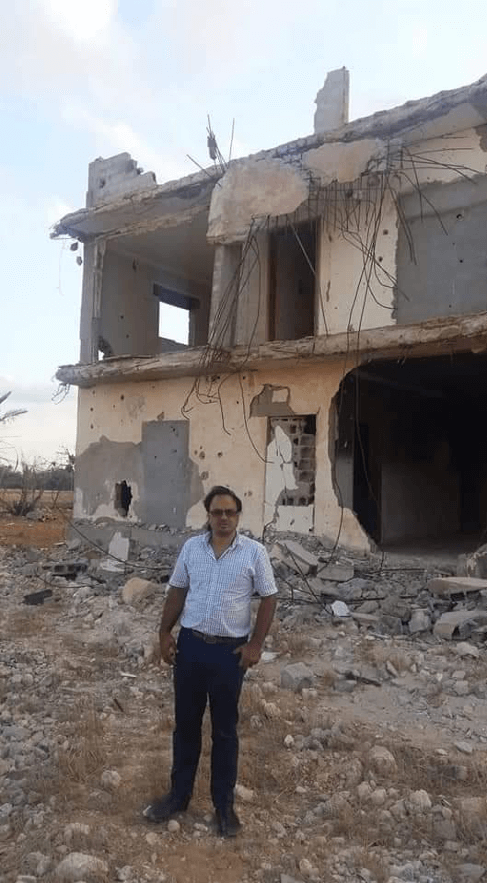Prominent Libyan poet and journalist Kilani al-Maghribi was a resident of the Benina suburb of Benghazi in Libya. In May 2014, he and his family were forced to leave their home when it was occupied by the terrorist organisations “Ansar al-Sharia” and the “Islamic State (ISIS)”, who were fighting against the national government and wanted to turn it into a headquarters for combat operations.
Speaking to IOHR in May 2021, Kilani al-Maghribi described his plight,
“As soon as they occupied my home, my family and I left Libya … I left my home between the rock and the hard place.”
Al-Maghribi detailed that not only did this invasion of his property violate his right to adequate housing, but that he has also faced threats to his right to express himself freely as a journalist. IOHR decided to make a submission to UN Special Procedures about these violations of his rights to see what could be achieved to rectify them.
Located around 4 kilometres from the Benina International Airport, al-Maghribi’s home was of significant strategic importance and was turned into a centre for launching missiles at military installations within the airport. Over the course of several months, and as a result of persistent armed confrontations between terrorist elements and the National Army, his home, and those of many within his community, were gradually destroyed.


“My house was made of two floors in an agricultural area .. It was the only high place in the area. That is why the fighters of the terrorist group used it to fire shells at the army at the Benina military base, in an attempt to prevent the army planes from taking off from the airport.”
During the time his home was occupied, al-Maghribi was unable to submit a complaint to any official body.
“It was a war between terrorist organisations and the national army, so there were no police stations, no prosecutor, and courts.”
The surviving victims are still searching for a party to restore their rights. The proposals of the new Libyan government, headed by Abdul Hamid Dabaiba, regarding the reconstruction of the country, has given these victims some hope, but they do not yet know whether assurances of recovery will constitute the reconstruction of their homes.
Al-Maghribi has also said that he believes, in addition to the strategic location of his residence, his negative inclinations to the presence of terrorist groups in Libya was a primary reason for the occupation of his home.

“the terrorist organisations, whether the members of “Ansar al-Sharia” or “ISIS”, know that I am from the opponents of their extremist ideas. They know that I fought them with the word”
Al-Maghribi’s journalistic and media activities were also restricted substantially as a result of the occupation of his home and the widespread proliferation of extremism in Libya. The private television channel he worked for, “Libya 24”, was closed two years ago; forcing his media activity to be constrained to social networking sites.
“I used to present a program on the Libyan heritage, but the channel stopped working … Libyan television channels opposing terrorist groups are very few”

An award-winning poet in Libya and western Egypt since before the fall of the former regime, al-Maghribi’s ability to practice has been severely limited, with the spread of terrorist groups leaving most forums of poetry absent.
“when I am in a public place, and people invite me to recite one of my poems, I refuse, because I am afraid that those who will listen to me or host me will be punished by terrorist organisations”
Confusion still remains regarding the ability of displaced Libyans to achieve the reconciliation being promised by Libyan authorities. For now though, al-Maghribi lives with his family as a refugee in Egypt, wary of the instability of the situation in Libya and the prospect of further retribution by terrorist groups should he return.

